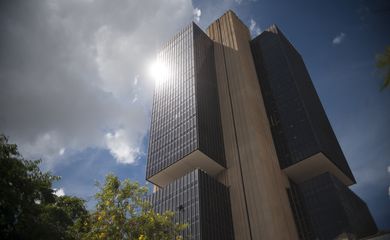Ministers deliver 2016 budget plan with estimated $8.36 billion deficit




Finance Minister Joaquim Levy and Planning Minister Nelson Barbosa submitted Monday (Aug. 31) to Senate President Renan Calheiros the text for the 2016 budget, which forecasts a primary deficit of $8.36 billion—0.5% of the country's gross domestic product.
Finance Minister Joaquim Levy and Planning Minister Nelson Barbosa submitted Monday (Aug. 31) to Senate President Renan Calheiros the text for the 2016 budget, which forecasts a primary deficit of $8.36 billion—0.5% of the country's gross domestic product. The document also shows the minimum wage for next year: $237.34, starting in January.
According to Deputy Ricardo Barros, rapporteur on the proposal at the Budget Commission, it will be the task of Congress, along with the government, to find an answer to the budget issue, as it is the first time the Executive branch delivers a budget plan to Congress with a gap in its accounts.
Despite the deficit, the rapporteur expressed his gratitude to the government for having turned in a “realistic” piece and said that Congress will work to reverse this situation, approving a deficit-free budget. “We have to increase revenue and slash spending. These are the only solutions,” Barros argued. “Keeping the budget with the deficit is not good for Brazil; it's not a good sign for the markets, and may even further increase the burden on the private sector and the economy of the country than a possible rise in revenue, a possible rise in the tax load. It's a wide debate we'll face with transparency and the involvement of all,” he said.
The budget proposal will now proceed to the Budget Commission for deliberation. The plan is expected to be approved by December 22.
Figures
The inflation in 2016 as measured by the National Broad Consumer Price Index (IPCA) is forecast at 5.4%. The gross domestic product, in turn, is predicted to expand 0.2%. According to the proposal, the inflation should only move to 4.5%—the center of the target, as set by the National Monetary Council (CMN)—in 2017.
“There has been a temporary rise in the inflation this year, but, with the measures taken by the Central Bank, the rate is estimated to lower to the target by 2017,” said the planning minister.
As for 2015, the inflation is estimated to stand at 9.25% and the GDP to slip by 1.8%. In Barbosa's view, growth recovery should start off 2016 at a slow pace compared with the economic activity. “We expect it to pick up pace in the following years. Part of this recovery is being driven by the increase in the balance of trade. But the internal demand, consumption, and domestic investment are contributing to a reduction, and the balance of trade won't be enough to offset the fall,” he said.
Translated by Fabrício Ferreira
Fonte: Ministers deliver 2016 budget plan with estimated $8.36 billion deficit




